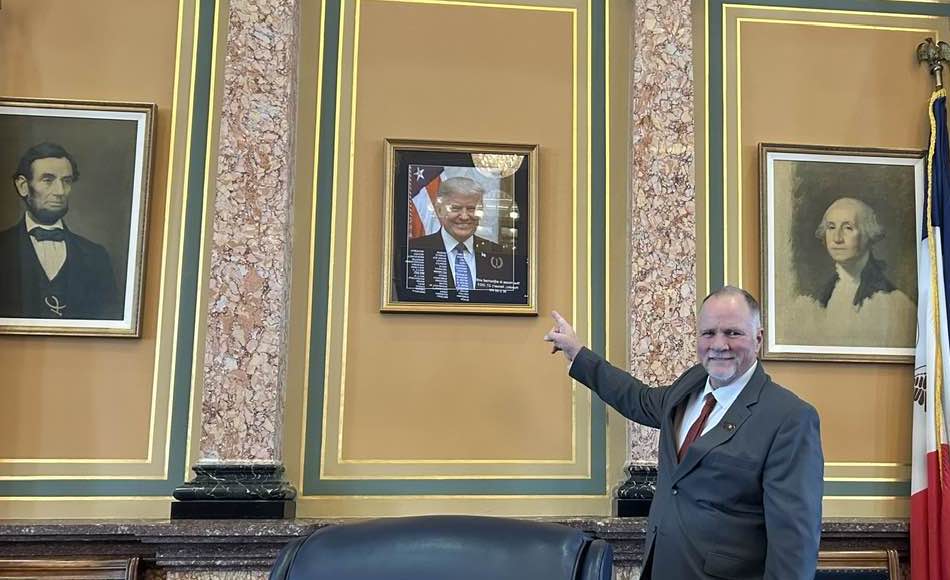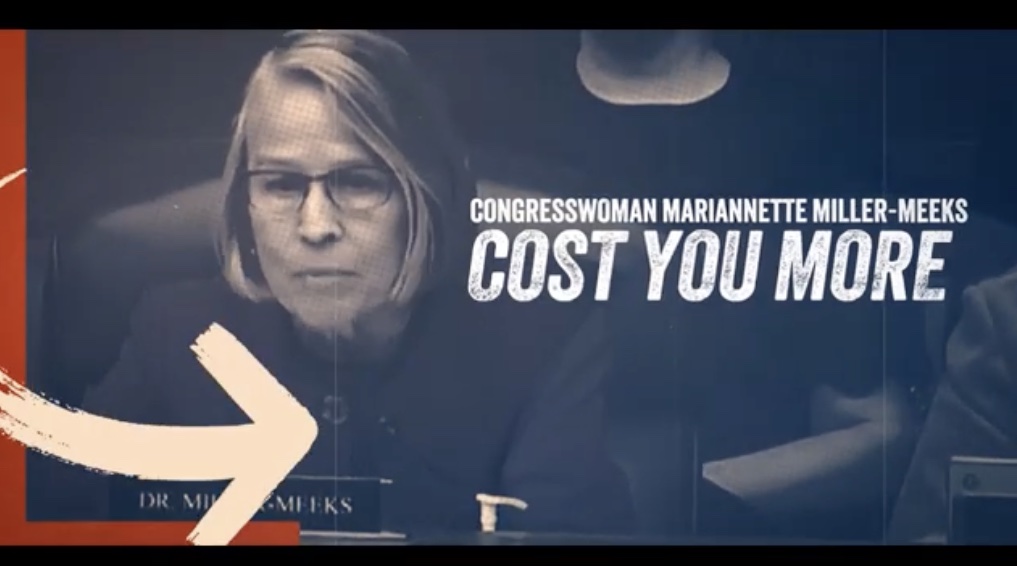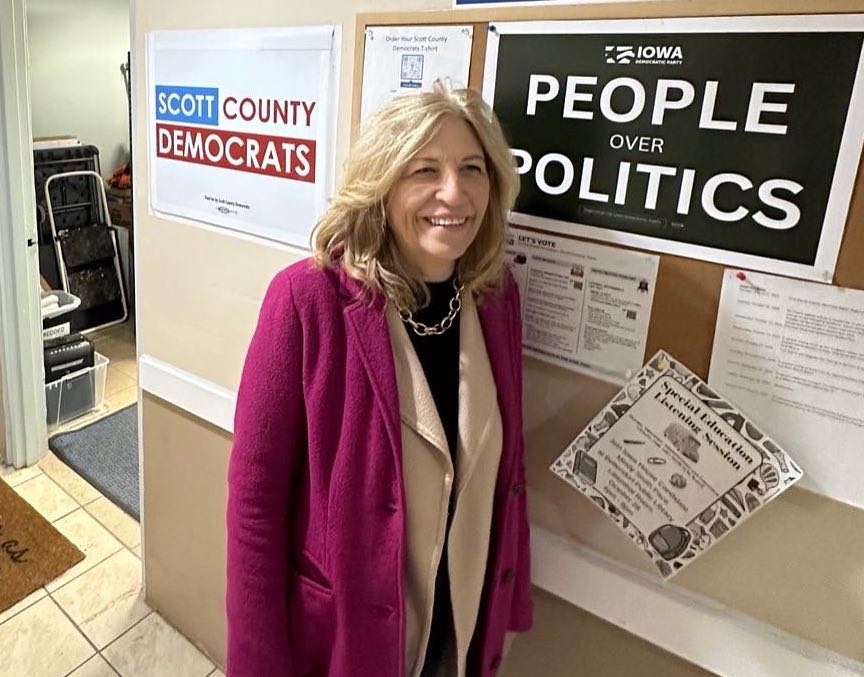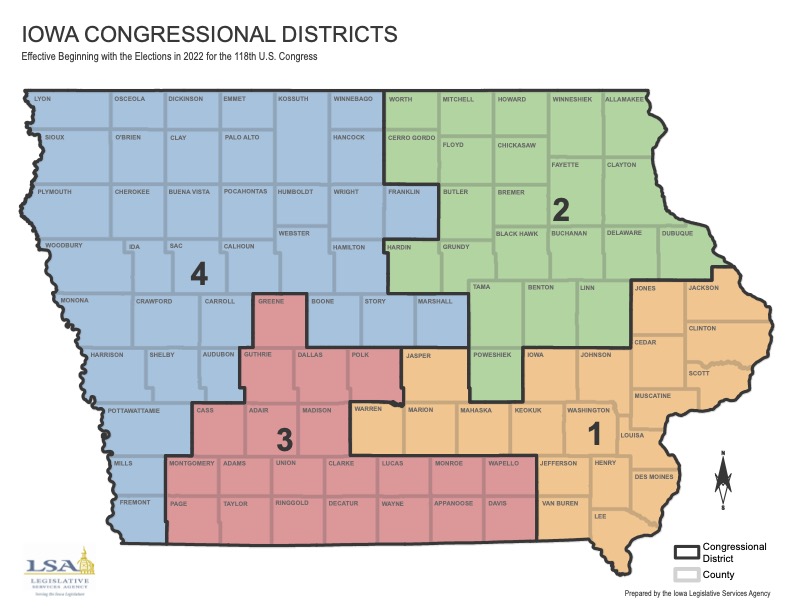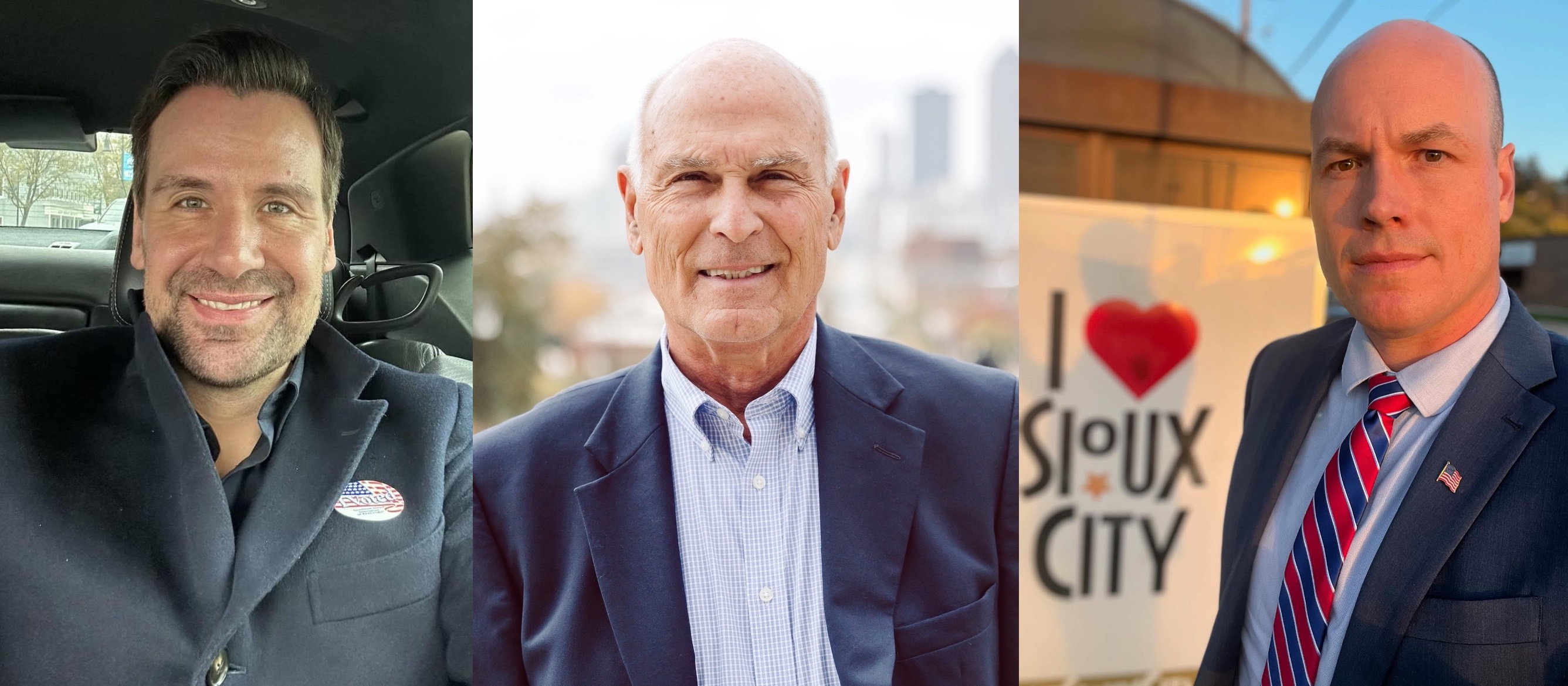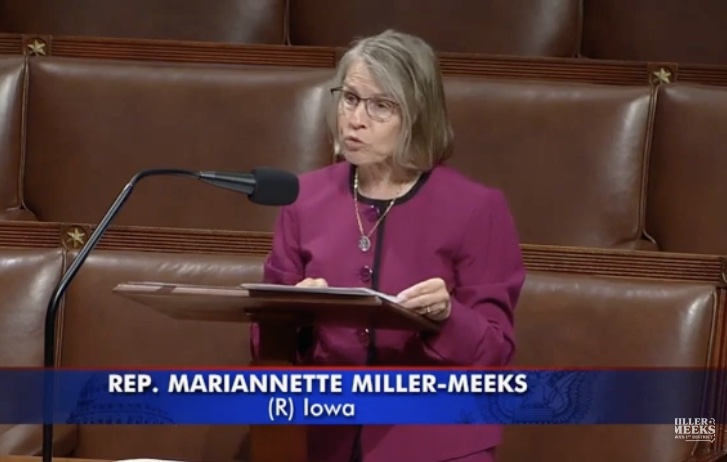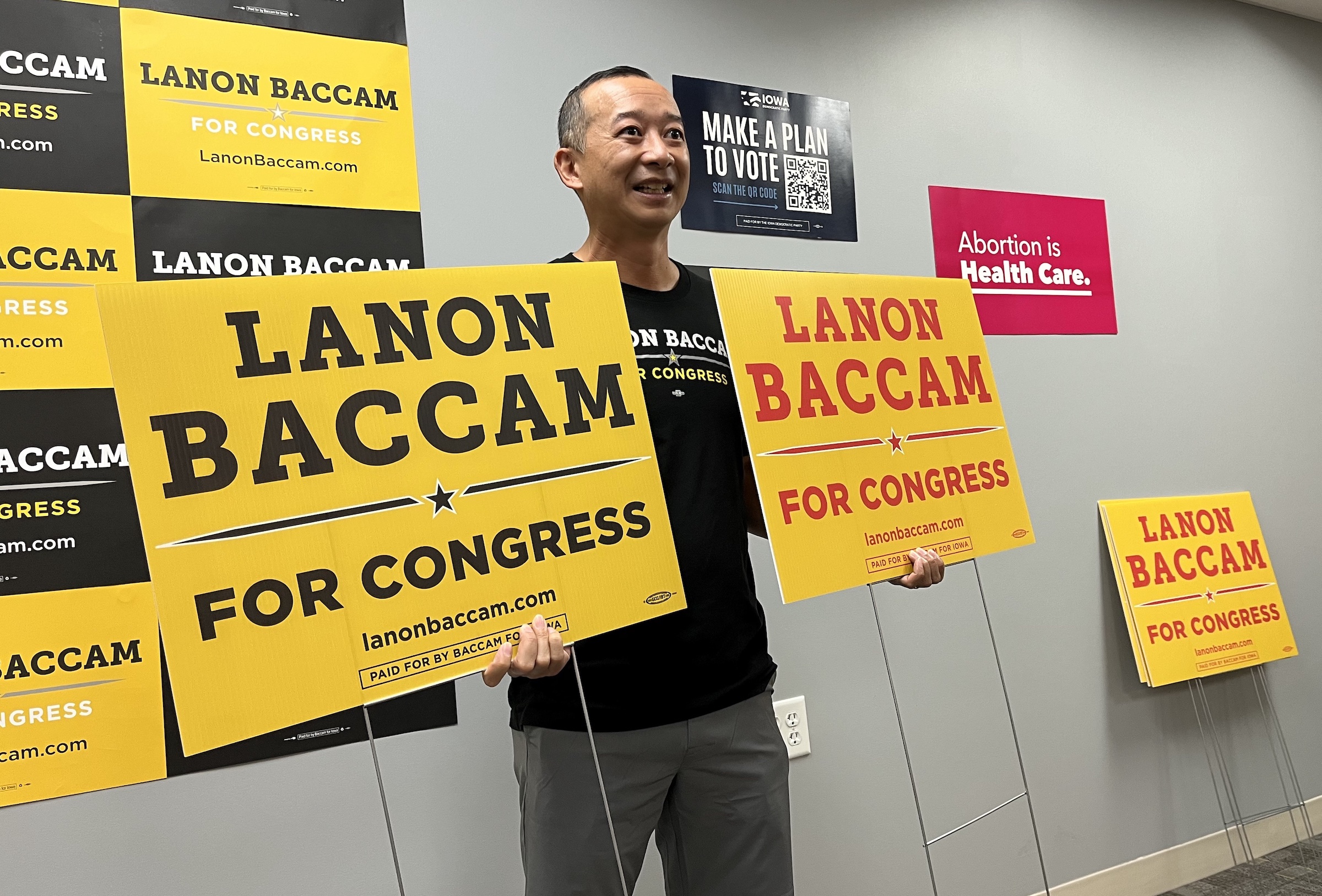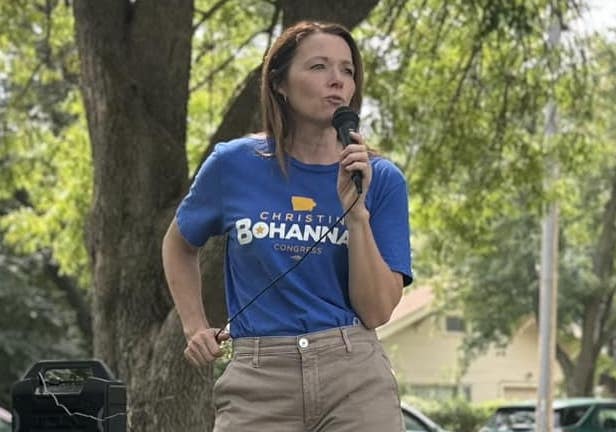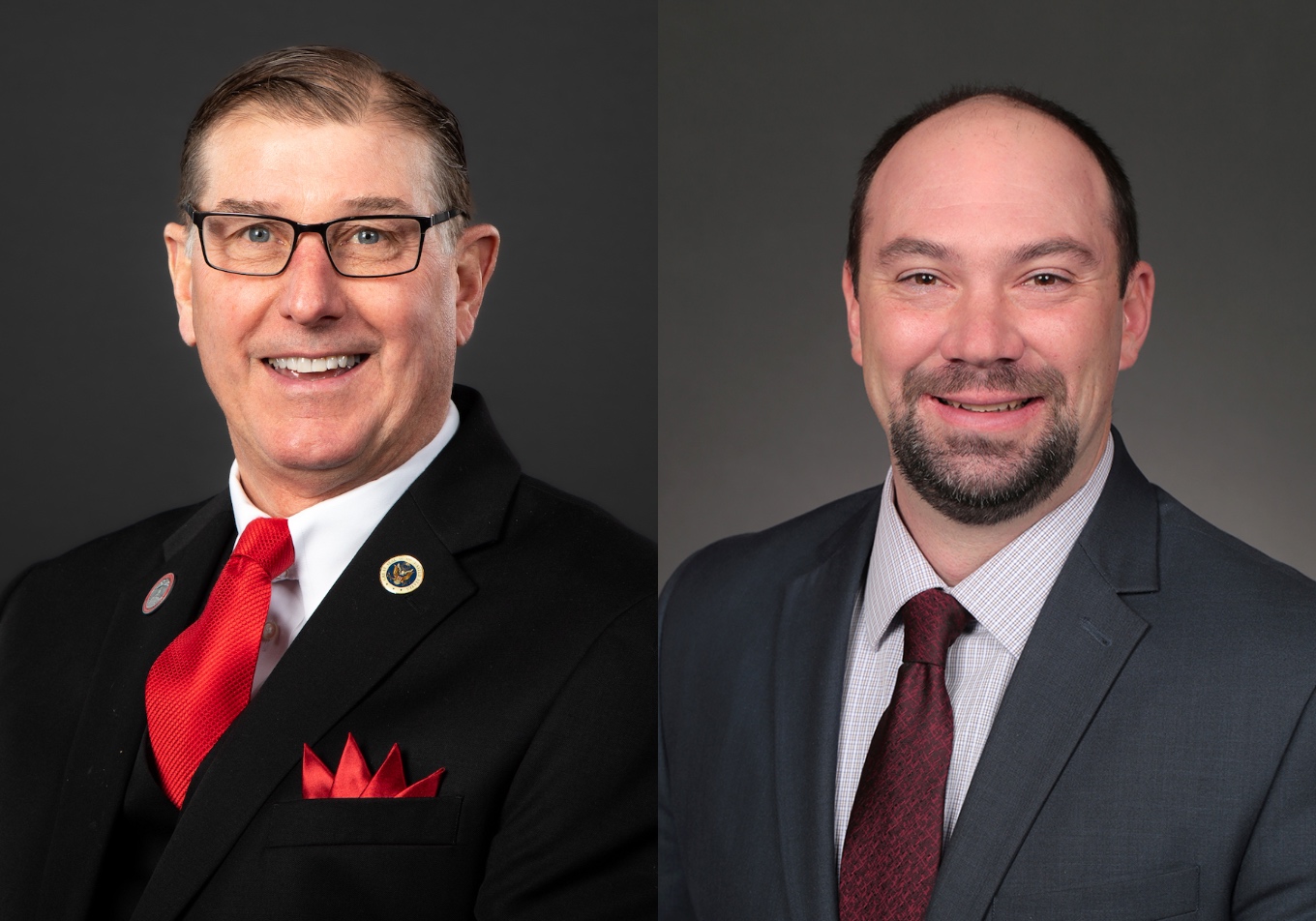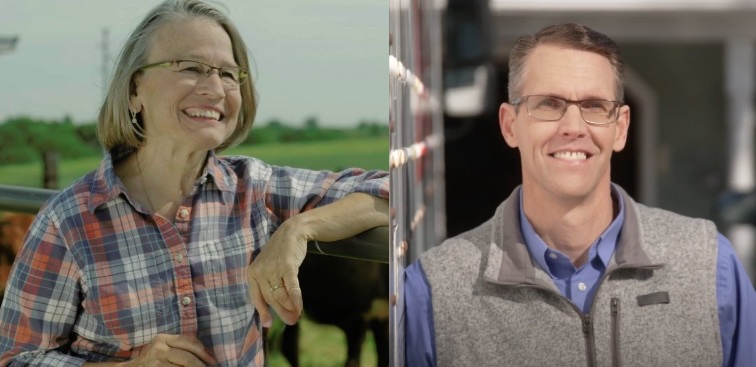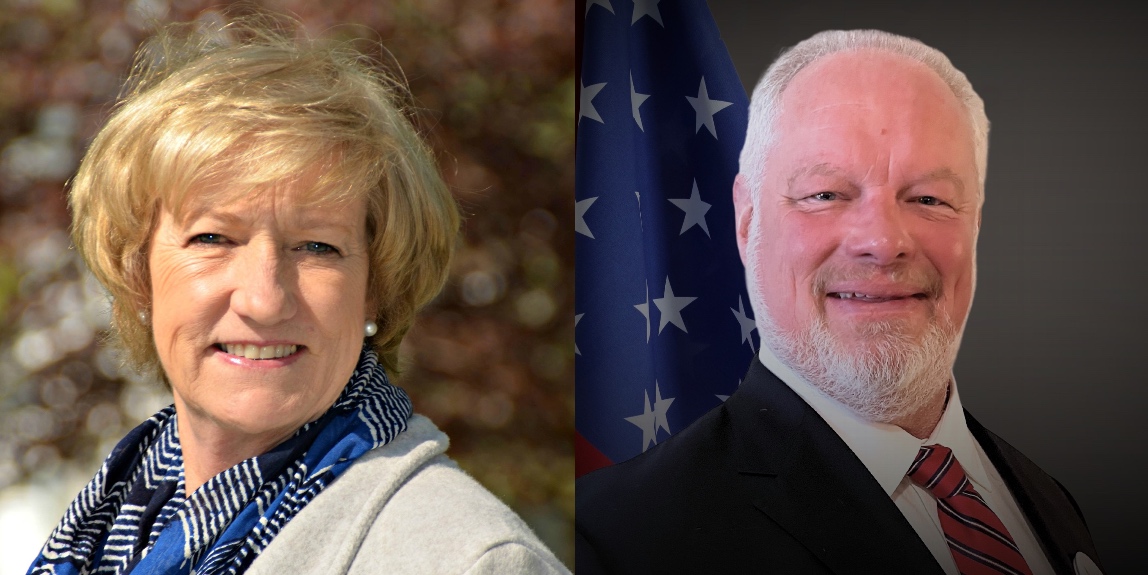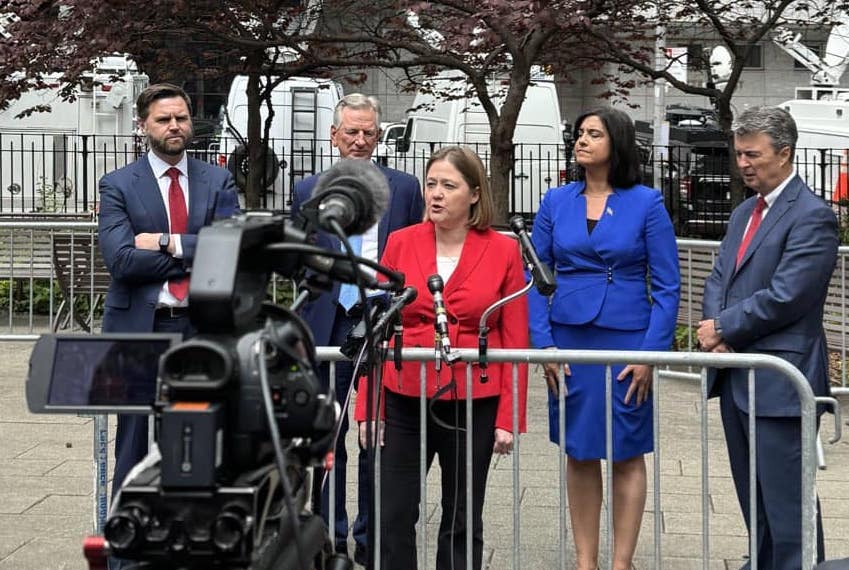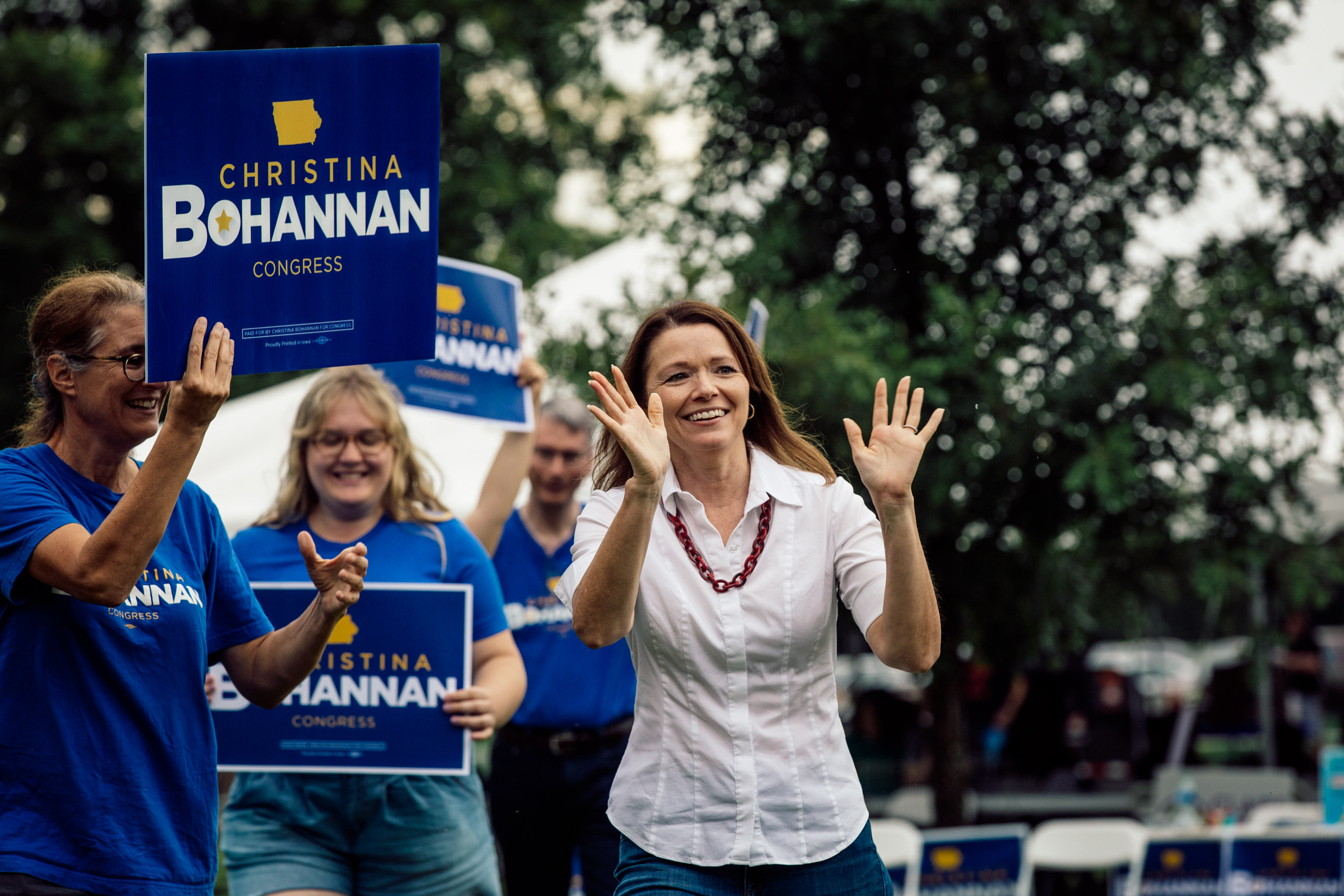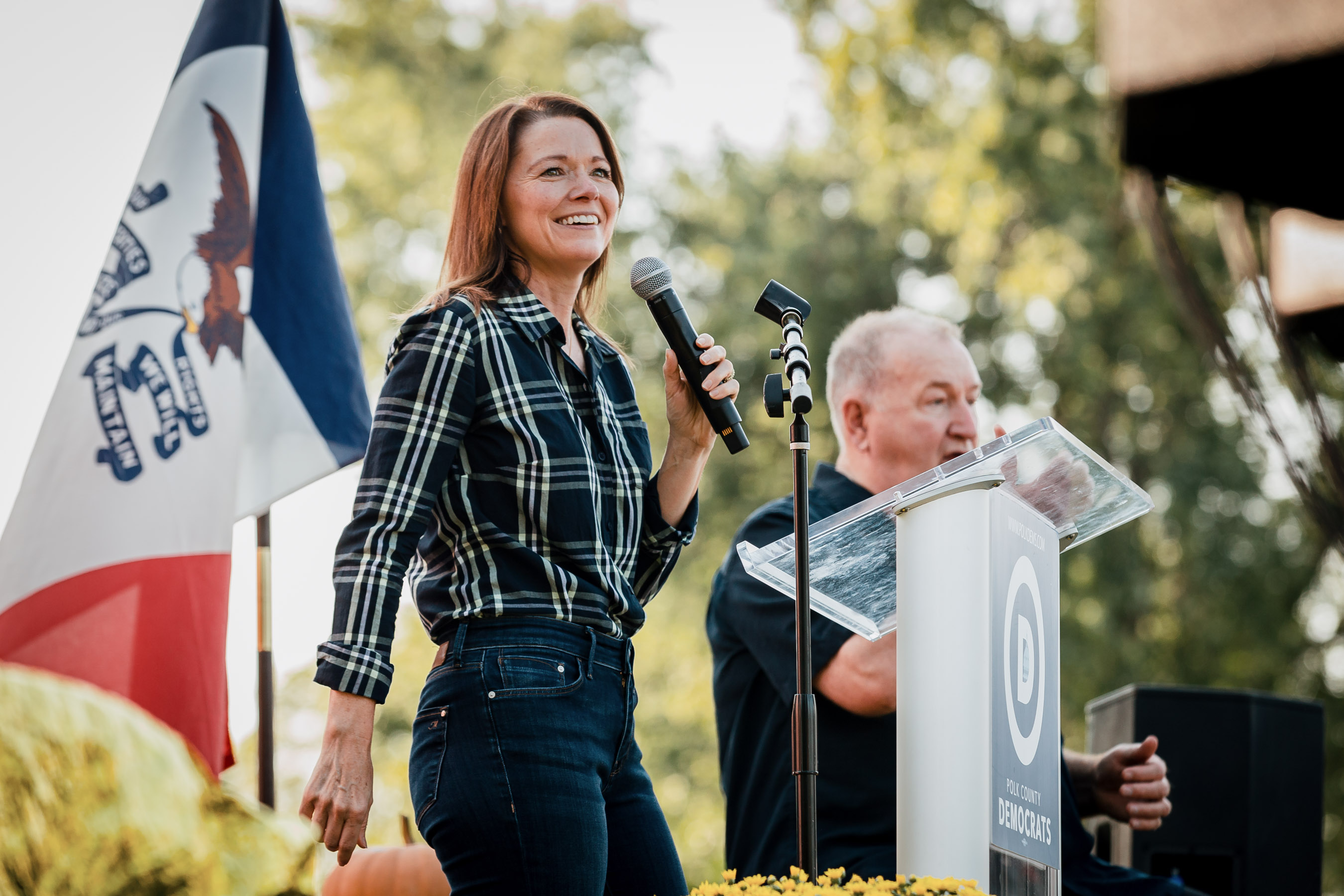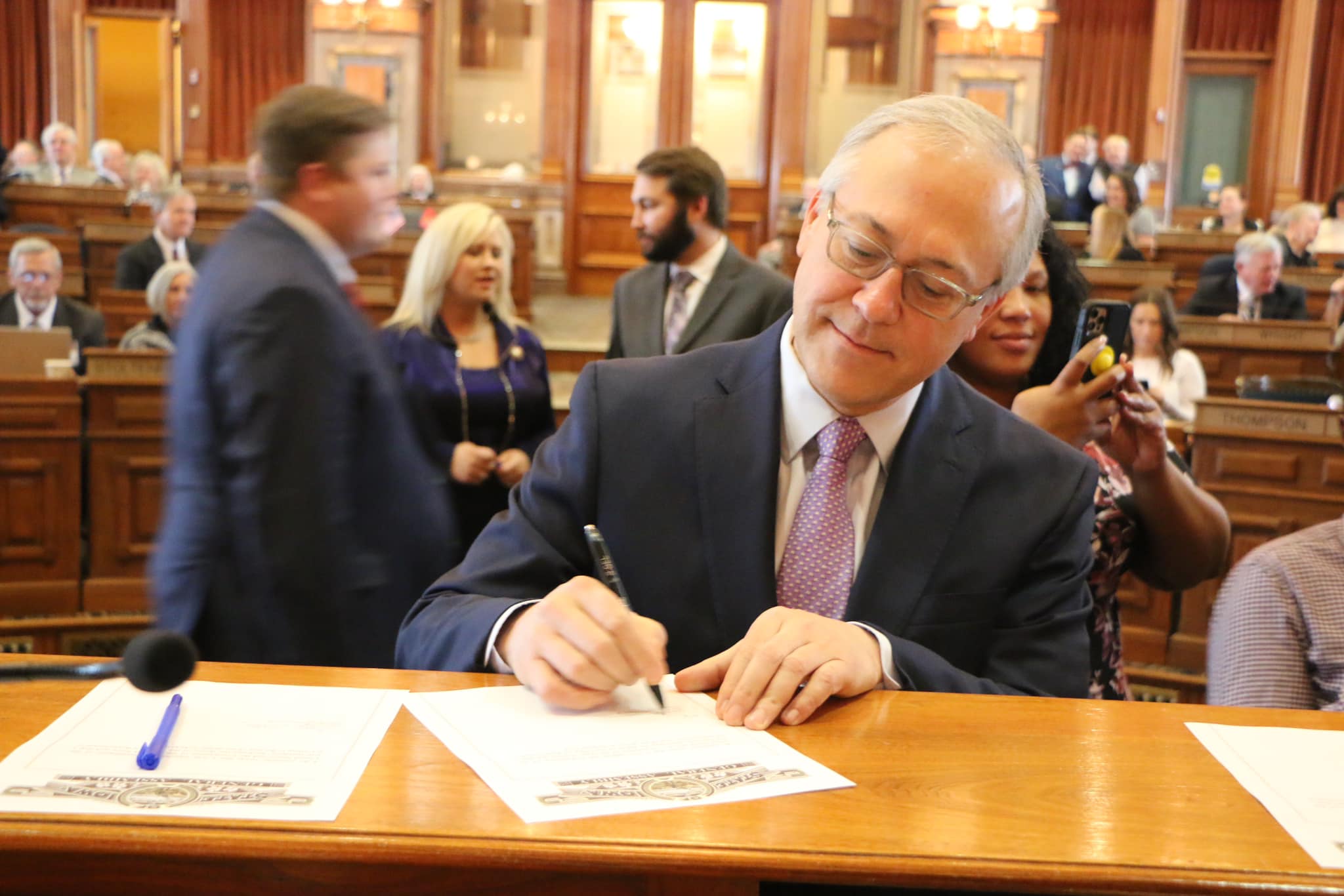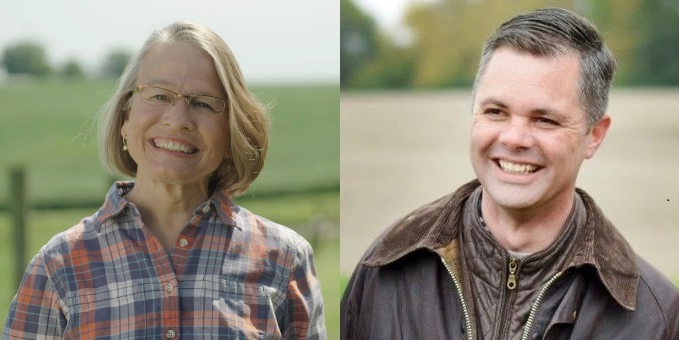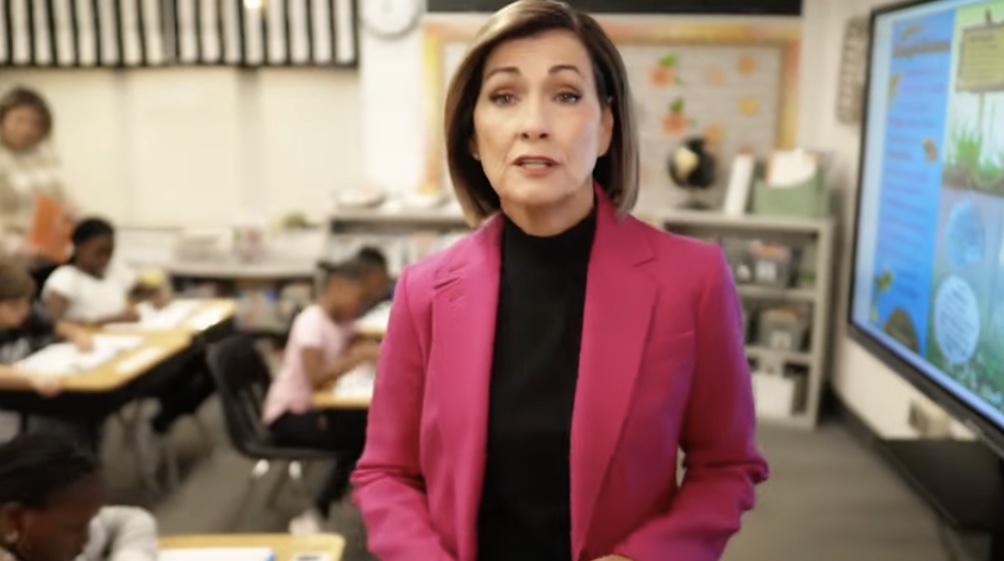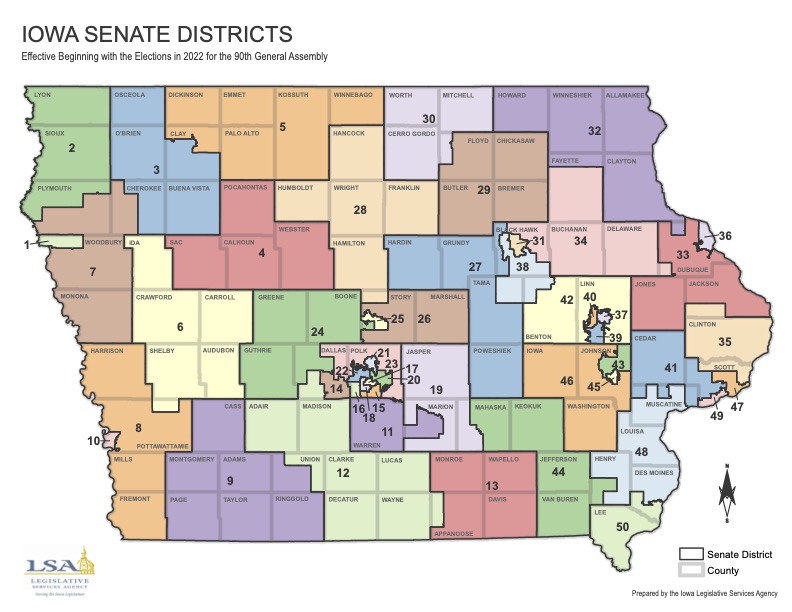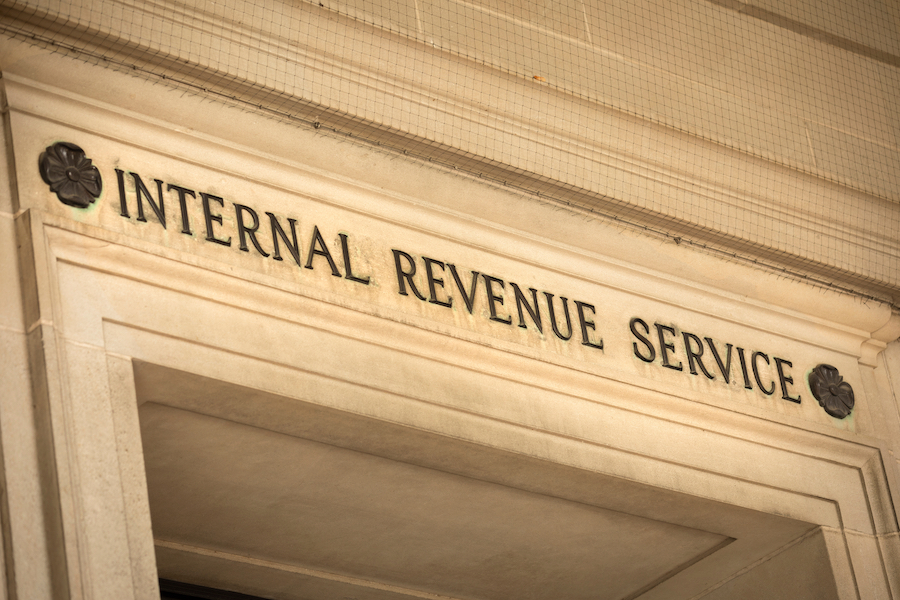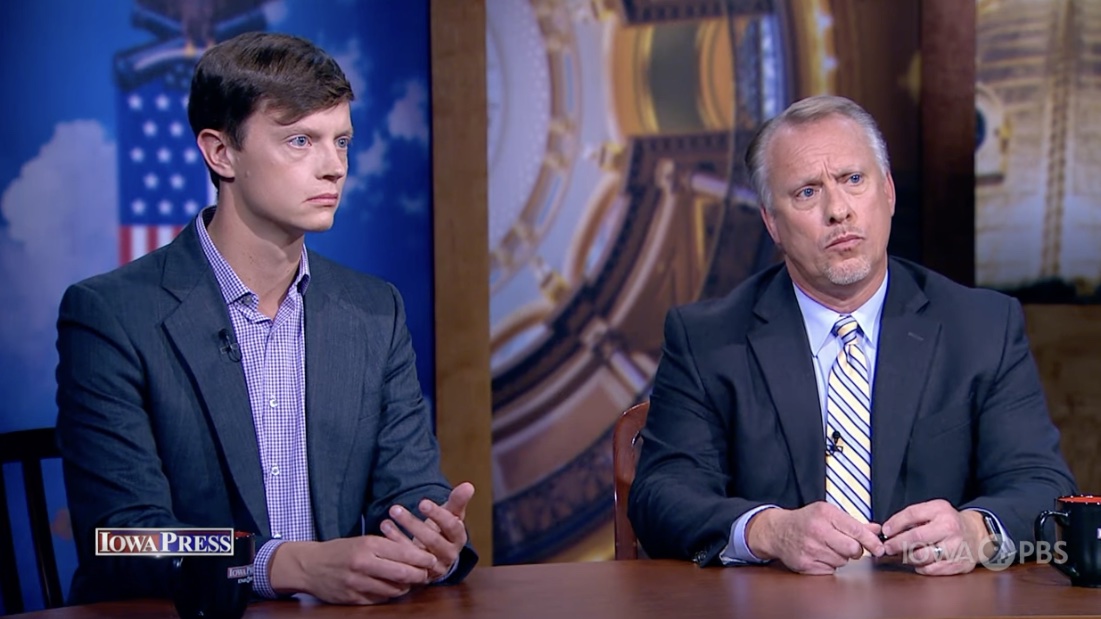The Iowa Democratic Party’s State Central Committee will meet in Ankeny on January 4 to elect a state chair for the next four years. Rita Hart, who has served in that role since early 2023, is seeking another term. She emailed the following action plan (“Forward: Victory 2026”) to State Central Committee members on December 23. The Iowa Democratic Party’s Progressive Caucus shared the document on Facebook on December 30.
Bleeding Heartland has not edited the text in any way, other than to move two sentences from a footnote to square brackets alongside the relevant phrase (for formatting reasons). All words in bold or italics were that way in the original document. You can download Rita Hart’s plan as a pdf here.
UPDATE: Hart won the election by 38 votes to ten for Tim Winter and one for Alexandra Nickolas-Dermody. Kim Callahan was also nominated during the January 4 meeting but did not win any votes.
Dear SCC members, Leaders, and fellow Democrats,
The 2023-2024 election cycle for IDP combined two ideas that are hard to hold at the same time. First, I am proud of the work our team has done to rebuild IDP as an institution. When I was elected, IDP had laid off all but 2.5 staffers. We did not have full-time Finance, Communications, or Data staff. We were $100k in debt. Over the last two years, despite challenges including a hostile DNC, a complete turnover in staff, and a cancer diagnosis, we have stabilized IDP and built a team that can execute an off-year plan starting in January 2025.
However, it clearly was not enough and we have a great deal more work to do. Two years ago, I wrote to you: “…serving as IDP Chair has never been an ambition of mine, but I care deeply about the success of Iowa Democrats. As a teacher, a farmer, a state senator, LG and congressional candidate, I have seen time and time again how the policies our leaders implement affect every day Iowans. My focus is squarely on helping our party begin winning elections again.” It is cold comfort that Iowa swung to the right less than the rest of the country (6 points nationally vs. 5 in Iowa) or that Christina Bohannan had one of the strongest overperformances in the country. We need to win.
Continue Reading...




